We begin learning from books at a young age and continue the trend all the way through graduation. Today, through websites like Amazon and Google, you can learn just about anything on any topic. However, some things are easier to learn than others. For instance, how to change a light bulb can be as simple as a 30 second YouTube clip. The ins and outs of entrepreneurship and how to found a successful business is another story entirely. Luckily, you still have a whole host of amazing and talented professors to help. Here is some light reading to give you a leg up from the faculty at the Department of Entrepreneurship & Strategy and Lassonde Entrepreneur Institute at the David Eccles School of Business at the University of Utah.
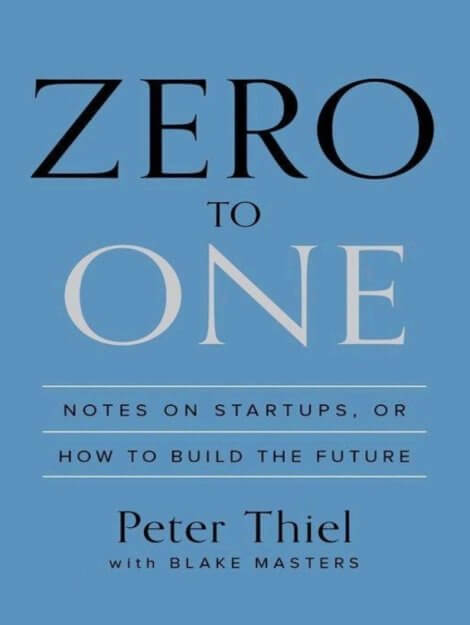
1. Zero to One by Peter Theil and Blake Masters
Recommended by: Bill Hesterly, Paul Brown, Lyda Bigelow
“Thiel’s iconoclastic wisdom is both enlightening and inspiring,” said Hesterly of this New York Times bestseller. Peter Thiel, Facebook investor and the founder of Paypal explains his strategy for startup success. Paul Brown recommended this book as a “great explanation of how building a successful startup is really trying to build, in a sense, a monopoly.” Bigelow added, “What I love about the book is that he provides a crystal-clear summary of the difference between monopolistic markets and competitive markets. As an entrepreneur, you want to be in a monopolistic environment. Many entrepreneurs don’t assess clearly enough whether their market is at least somewhat monopolistic.”
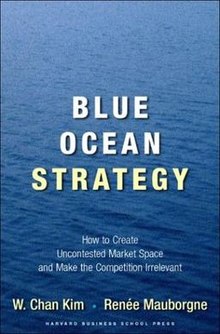
2. Blue Ocean Strategy: How to Create Uncontested Market Space and Make the Competition Irrelevant by Chan Kim and Renee Mauborgne
Recommended by: Bonita Austin, Brad Williams
“It helps get strategists, firm leaders and aspiring entrepreneurs to think about industry boundaries and value creation in ways that are different from incumbent firms,” Austin said. There are two kinds of ocean for business to swim in: red and blue. Red waters are bloody because there is stiff competition. Strategy for red businesses must be focused on beating rivals. Blue oceans are uncontested open market spaces where businesses can focus on adding value to a new area. Where do you want to tread?
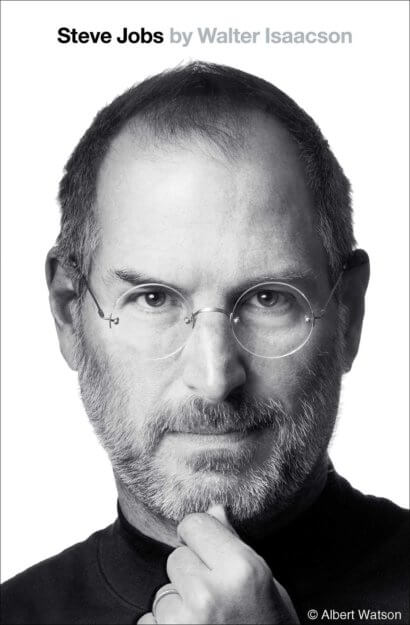
3. Steve Jobs by Walter Isaacson
Recommended by: Troy D’Ambrosio, Lyda Bigelow
“The title says it all,” according to D’Ambrosio. Steve Jobs is an international icon of successful business and this is the story of how he got there. “If you are going to hunt for a value creation opportunity, you want to start with something you’re passionate about. I think [he] does a good job of that,” Bigelow said. “Isaacson goes through this nonlinear path Steve Jobs took to becoming one of the most successful entrepreneurs ever. It all centers about feeling really passionate about something. For me what stands out is Job’s deep belief in design, everything for the way computers worked to recognizing thought. Those are things he studied and delved into when he was a college student.”
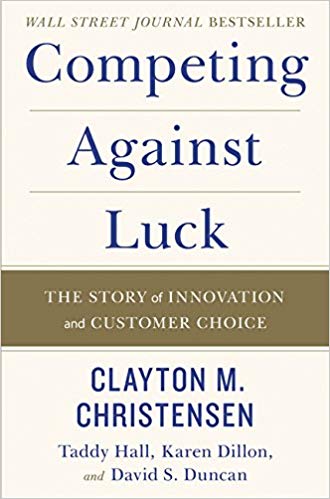
4. Competing Against Luck: The story of Innovation and Customer Choice by Clayton Christensen, Taddy Hall, Karen Dillon, and David Duncan
Recommended by: Brad Williams and Jeremy Cox
All entrepreneurs need is to find new opportunities that will succeed. It’s so simple. Except, any entrepreneur will tell you it’s not. So how do new companies enter the competitive world of business without having to play defense from the start? It all comes down to defining a customer’s job and then finding a way to help them achieve it. This approach takes luck out of the equation and focus companies on what matters most, adding value. “Dr. Clayton Christensen encourages managers to not simply think about products as residing within markets,” Cox said, “but asks what the ‘job’ is a customer hires the product to do. This alternative way of considering products allows for the generation of value-creating ideas.”
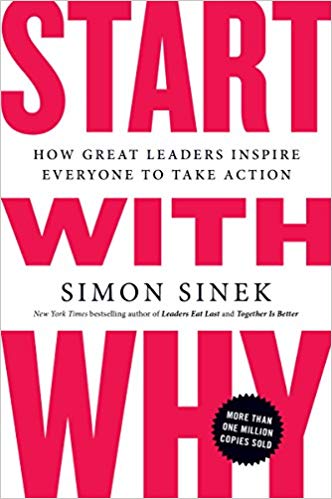
5. Start with Why by Simon Sinek
Recommended by: Bonita Austin
“Businesses without purpose do not last,” Austin said. “Thinking about the reason why your organization exists, its core purpose and connecting that core purpose to every aspect of the firm will help inspire and motivate employees and win customers,” Austin said. Sinek believes wholeheartedly in the idea of doing what you love. He backs this belief with detailed examples of how pursuing your passions can lead to successful businesses and better lives today.
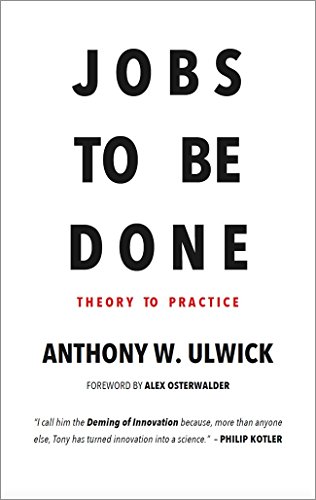
6. Jobs-to-be-Done: Theory into Practice by Anthony Ulwick
Recommended by: Bonita Austin
“This book introduces the reader to a different way of looking at value creation for customers than is traditionally taught in strategy and marketing. I find it to be a great complement to ‘Blue Ocean Strategy’ as the ‘way of thinking’ is similar, in my opinion,” Austin said. This theory centers around the idea of purpose. Business offers services which complete jobs. As the popularity of individual businesses wavers the jobs which needs completing is steady. Companies who focus on the job instead of the product are more likely to succeed.
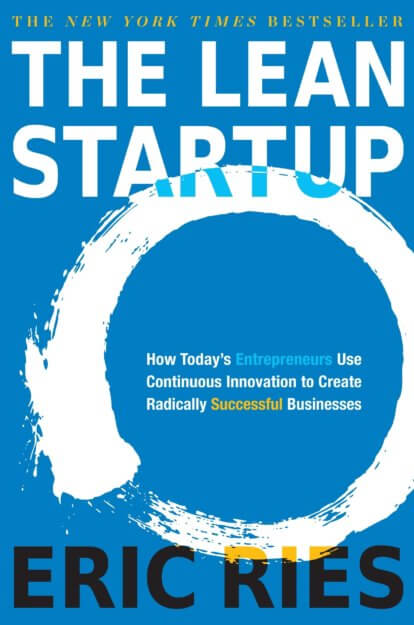
7. The Lean Startup: How Today’s Entrepreneurs Use Continuous Innovation to Create Radically Successful Businesses by Eric Ries
Recommended by: Paul Brown
“The best explanation of the lean startup method, which helps entrepreneurs to develop hypotheses underlying their startup and then test them cheaply and quickly to determine if the business model is viable or needs to be tweaked,” Brown said. “The framework offers entrepreneurs the best opportunity to ensure they’re not building a product or service no one wants.” Wouldn’t it be nice to take the guesswork out of starting a new venture? This book offers a method of evaluation to help you determine in a kind of scientific way whether your idea just might work.
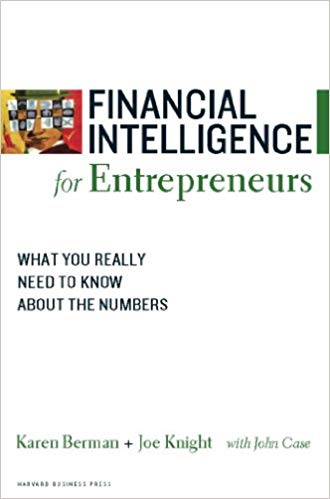
8. Financial Intelligence for Entrepreneurs: What You Really Need to Know About the Numbers by Karen Berman and Joe Knight with John Case
Recommended by: Paul Brown
These three experts have put together all their best advice on financial management and condensed it into a book. “An excellent introduction to all of the financial concepts an entrepreneur needs to know,” Brown said. “I’ve found finance literacy to often be a weakness of many entrepreneurs.” Whether you are just getting started or well on your way it is never too late to make sure you understand where the money is.
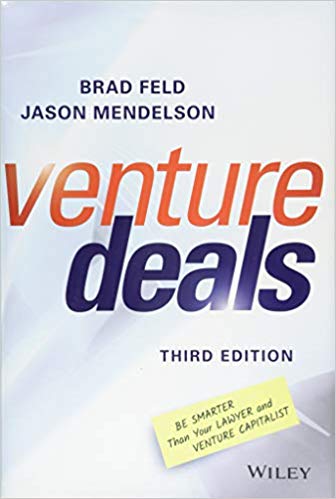
9. Venture Deals: Be Smarter Than Your Lawyer and Venture Capitalist by Brad Feld
Recommended by: Paul Brown
“If you’re seeking outside financing for your startup, read this book,” Brown said “It’s the best overview of how such deals are structured that I’ve ever read. “Where to get funding and how much to look for, two key questions every entrepreneur should ask. This book is a complete guide to how funding works, how to keep your focus on generating revenue and what to talk about in those important early meetings.
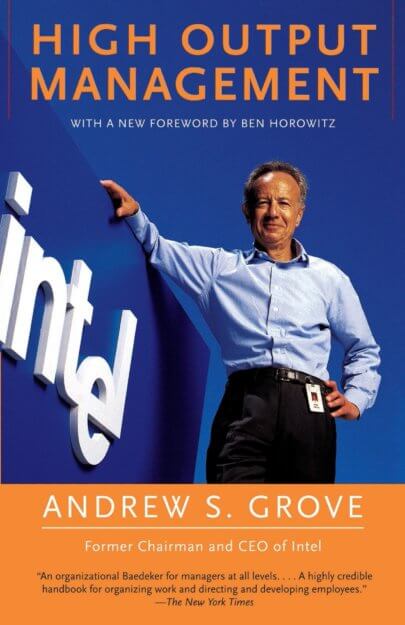
10. High Output Management by Andrew S. Grove
Recommended by: Rob Wuebker
“For 25 years it has been the touchstone operating manual for high-impact entrepreneurship,” Wuebker said. He supports “its contrarian (and challenging) thesis — the critical, essential skill in entrepreneurship is management.” This book might cost only $10, but it could be worth much more in the mistakes you’ll avoid having read it. Start with training yourself and then watch the magic a good manager can cast.
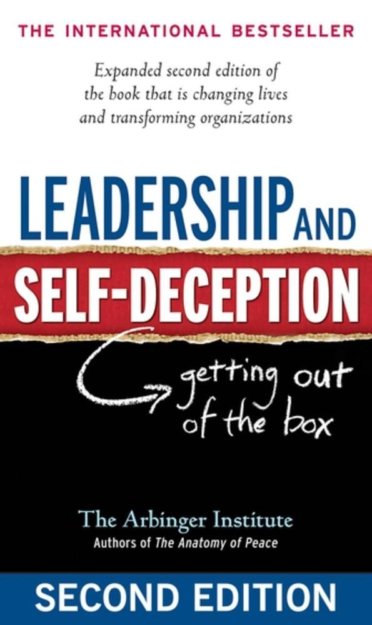
11. Leadership and Self Deception: Getting out of the Box by The Arbinger Institute
Recommended by: Rob Wuebker
Wuebker said it all: “The central challenge in finding a valuable problem to solve (identifying or creating an entrepreneurial opportunity) is not lack of creativity or imagination or alertness. Rather, it is you. Thinking for yourself is a skill, developed through practice. You got where you are by following the rules and learning how to be ‘appropriately unconventional.’ You know exactly how far to ‘think outside the box’ — far enough to get a pat on the head but not enough to call the whole enterprise into question. Unfortunately, thinking truly novel (valuable) things is hard, risky, often means facing hostility and puts your GPA at risk.
“You lack this skill — not because you are a bad person, but because you lack a context for practice. You practiced being an excellent sheep and are quite good at that. And, you are also exceptionally skillful at designing the world to make sure you never discover your lack of imagination, or any other fact that might pierce your precious self-construct. Pro tip: another part of your precious self-construct is the belief that you are an expert at #crushingit, have a Bullet Journal, read the ‘Four-Hour Work Week,’ and don’t need to read ‘High Output Management,’ you can get-r-done. Overcoming this tendency toward self-deception and becoming coachable is one of the few things that impact startup outcomes.”
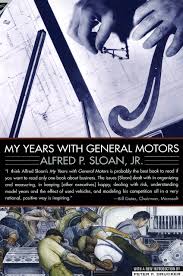
12. My Years with General Motors by Alfred P. Sloan Jr.
Recommended by: Rob Wuebker
“Things that we take for granted — for example, the modern corporate form — were made up by someone back in the day and seemed unwise at the time,” Wuebker said “Human beings made up all the social institutions in this world. If you do it well, you make up one and people forget how it happened and treat it like it was always there and self-evidently good. In ‘My Years With General Motors,’ Alfred Sloan documents his bumbling process creating the corporate form we now worship. Creation is bumbling that gets reified. Once you’ve finished, learn how to make up a country by reading ‘From Third World to First’ by Lee Kuan Yew.”

13. Hero with a Thousand Faces by Joseph Campbell
Recommended by: Rob Wuebker
Why start a business of your own? Wuebker doesn’t see profit as a good enough reason: “You and your team are unlikely to create a compelling product or lasting organization. You will most certainly suffer mightily during the process, and even if you do overcome overwhelming odds and ‘succeed’ in building a company, the data suggests that you will not generate as much wealth as you would have had you stayed in your cube. Given this state of affairs, why bother starting a company in the first place? Because it is not the point. After you are done with that, read ‘Gilgamesh’ (Mitchell’s translation).”
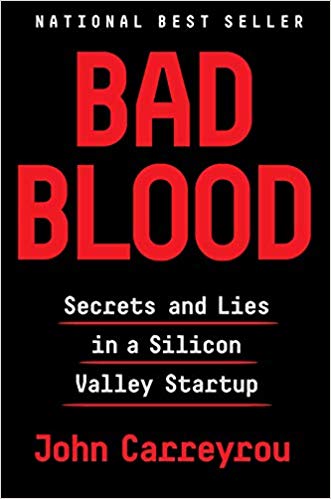
14. Bad Blood: Secrets and Lies in a Silicon Valley Startup by John Carreyrou
Recommended by: Troy D’Ambrosio
D’Ambrosio describes this as a “great morality tale of greed and ego at a Silicon Valley unicorn.” Here’s the premise: a blood-testing company appears out of nowhere and skyrockets. The CEO is on magazine covers and the industry is revolutionized. Until it’s all revealed to be a fake. The company gets sued, products are pulled and all that wealth is gone just as fast as it arrived. What happened? We like to think that collective human consciousness will catch the lies. We prefer to believe that more heads are better at seeing through mistakes and falsified information. What if they aren’t?
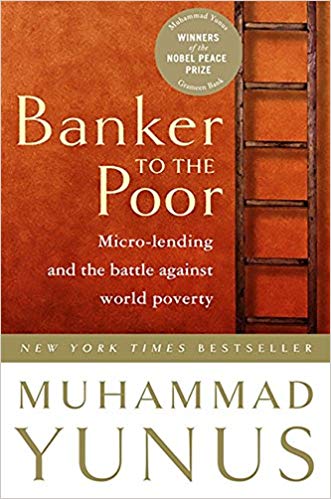
15. Banker to the Poor: Micro-Leading and the Battle Against World Poverty by Muhammad Yunus
Recommended by: Troy D’Ambrosio
In a world where CEO’s seem to step down daily and scandal used almost as commonly as like D’Ambrosio calls this book “social entrepreneurship at its best.” This story begins with a man who built a bank to help the little guy, the poorest of the poor in Bangladesh. It is a story of human resilience and how, given the chance, people will pull themselves out of the direst situations with just a little bit of help. This system is now practiced in over 60 countries so he must have done something right.
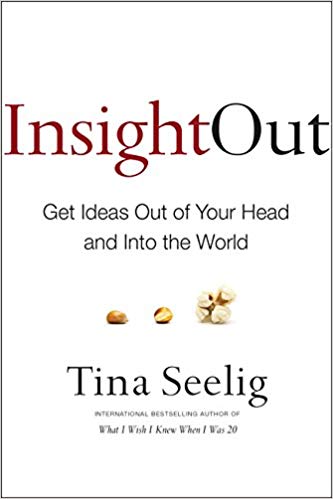
16. Insight Out: Get Ideas out of Your Head and Into the World by Tina Seelig
Recommended by: Kathy Hajeb
Goals, experimentation and the ability to inspire support, these are all great to have but can be hard to obtain. Tina Seelig, a professor of engineering at Stanford University uses her experience to help you build your invention cycle. The invention cycle is her framework for creative brilliance which might just lead to your next big idea.
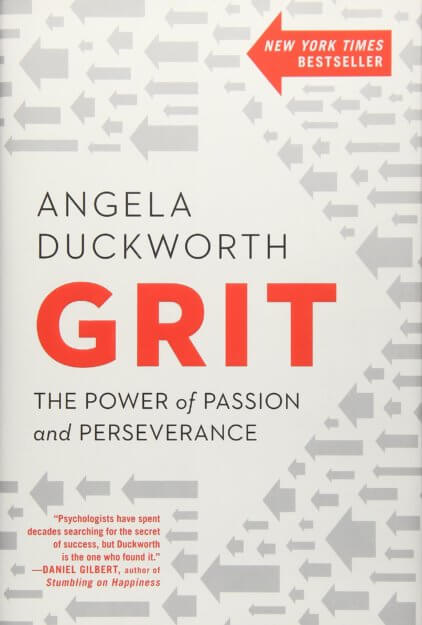
17. Grit: The Power of Passion and Perseverance by Angela Duckworth
Recommended by: Kathy Hajeb
Author Angela Duckworth believes that success is achieved by passion and perseverance, not talent. Her book explores the path to success through interviews, personal experience and grit. Achievers can be anyone.
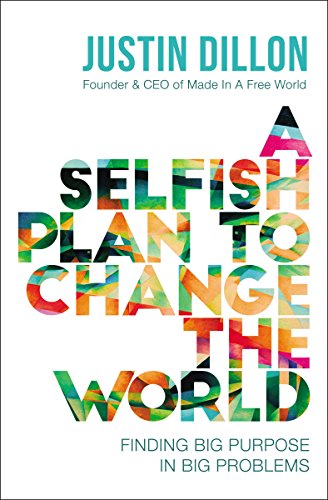
18. A Selfish Plan to Change the World: Finding Big Purpose in Big Problems by Justin Dillon
Recommended by: Kathy Hajeb
Giving back may not be the way to effect change after all. Instead, Dillion encourages readers to give in to pursuing their passions and desires. He believes that your passion can do great things all on its own. This is your guide to finding purpose through your own skills and experiences. You don’t have to be great to do great things.
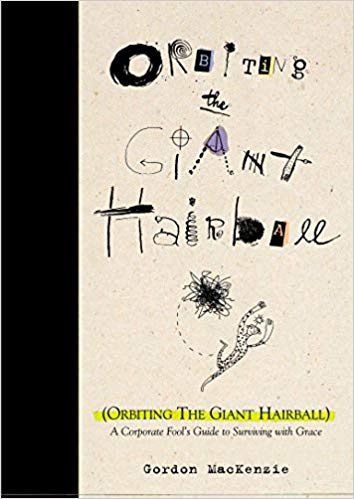
19. Orbiting the Giant Hairball: A Corporate Fool’s Guide to Surviving with Grace by Gordon MacKenzie
Recommended by: Kathy Hajeb
Entrepreneurship may not be the path for everyone. For those who are interested in entering the corporate world this is the book to read. Mackenzie orbits the rules and regulations of corporate structure while finding fulfilling goals for himself and doing his best work simultaneously. 9-5 doesn’t have to mean misery and the corporate ladder doesn’t have to be climbed to enjoy your life.
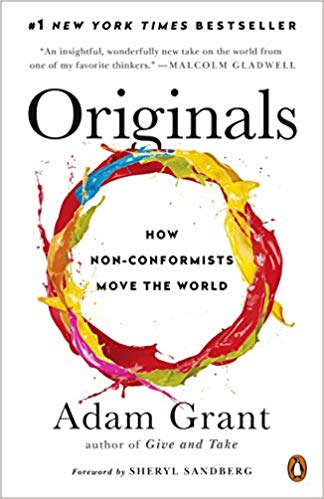
20. Originals: How Non-Conformists Move the World by Adam Grant
Recommended by: Brad Williams
You may think you know what creativity looks like, but read this just to be sure. Grant defines it as a combination of persistence, perspective, transparency, critical thinking and even procrastination. His ideas center around quantity over quality and procrastinating to inspire brilliance. Just don’t try it with your homework.
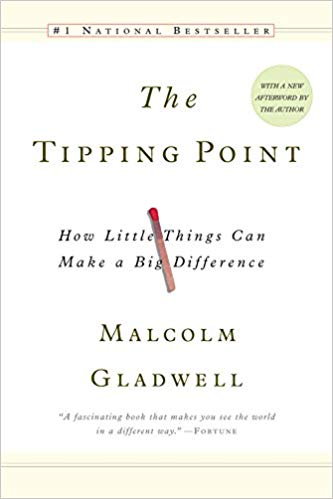
21. The Tipping Point: How Little Things Can Make a Big Difference by Malcolm Gladwell
Recommended by: Brad Williams
Have you ever heard ideas are contagious? Malcolm Gladwell likens them to a virus or even wildfire. All you have to do is get your ideas to the tipping point. Once it topples over success will be everywhere. It’s just a matter of getting there.
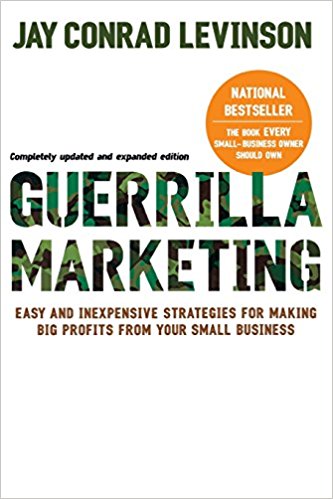
22. Guerrilla Marketing: Easy and Inexpensive Strategies for Making Big Profits from Your Small Business by Jay Conrad Levinson
Recommended by: Brad Williams
Marketing is really very simple. It’s built on knowledge of product and relationship and once the savvy entrepreneurs have this knowledge they can be unstoppable. Conrad presents 50 golden rules for small businesses to follow to marketing success. Just follow along.
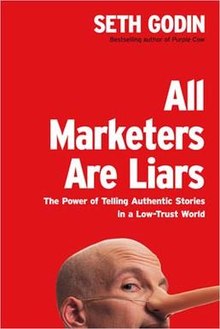
23. All Marketers are Liars: The Power of Telling Authentic Stories in a Low Trust World by Seth Godin
Recommended by: Brad Williams
While this title sounds pessimistic, the book is actually about human psychology. Ever heard the idea “we believe what we want to believe?” Marketers use this idea to push their products. For example, Godin claims “we drink the can, not the beverage” when we pick up a soda. It’s like the old adage “don’t judge a book by its cover,” except what else would we judge it by?
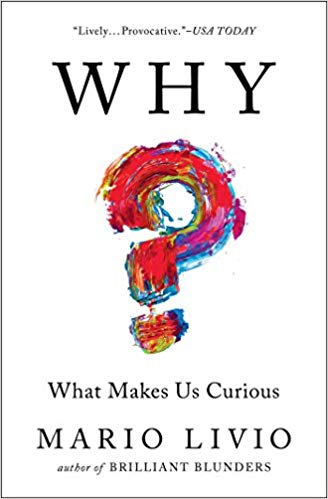
24. Why?: What Makes Us Curious by Mario Livio
Recommended by: Brad Williams
Curiosity may have killed the cat, but it’s a very human attribute. Livio is an astrophysicist exploring the psychology behind curiosity. Aren’t you curious what he found?
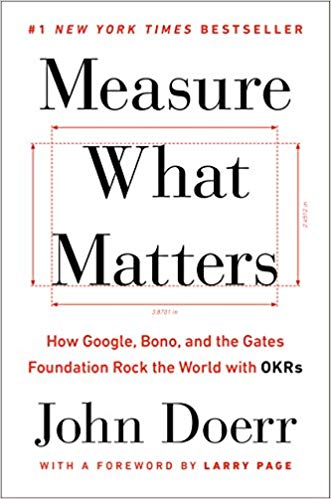
25. Measure What Matters by John Doerr
Recommended by Brenner Adams
“I’m loving ‘Measure What Matters by John Doerr,’” Adams said, “I love it because it introduces the OKR methodology Intel, then Google (and Gates foundation/Bono) use to set and track objectives and key results.” This book gives you a goal-setting system to help you gain what you want and track your progress along the way. Maybe it will even help with homework.
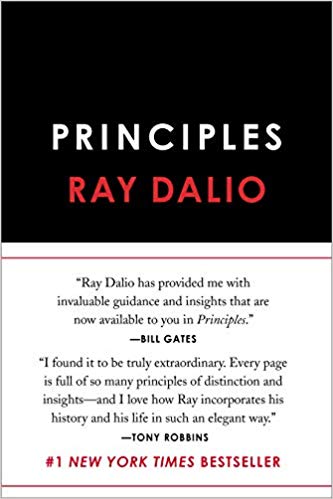
26. Principles: Life and Work by Ray Dalio
Recommended by: Jeremy Cox
This book is radical in the best and worst way. Dalio asks readers to build a work environment which is totally open, completely transparent and advocates sharing criticism to avoid toxicity. If it works you will have an honest effective system free from social drama or resentment. Cox said, “Ray Dalio offers great insight on the benefits of making a system of values explicit so that they may be routinely used and evaluated within a dynamic business.” Do you dare to attempt it?
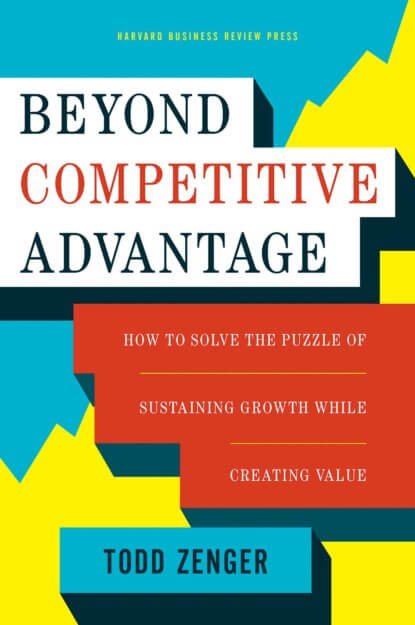
27. Beyond Competitive Advantage: How to Solve the Puzzle of Sustaining Growth While Creating Value by Todd Zenger
Recommended by: Jeremy Cox
“Firms operate in such a way as to create and capture value. Zenger offers a look at how successful firms organize to create value,” Cox said. It turns out that simply having a competitive advantage is not enough. Investors want more than a history of success — they want some sort of surprising and interesting innovation to make stocks soar. How do you get there? Zenger has a few ideas.
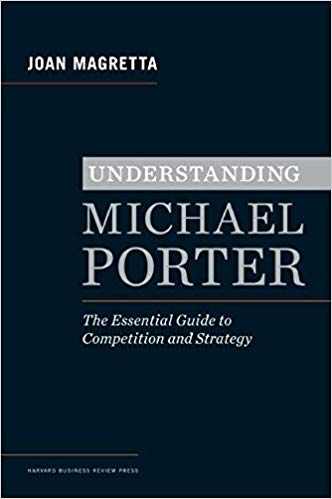
28. Understanding Michael Porter: The Essential Guide to Competition and Strategy by Joan Magretta
Recommended by: Jeremy Cox
“Michael Porter is often misunderstood,” Cox explained, “though his writings have formed the backbone of strategic management thought for decades. Joan Magretta offers a great summarization of Michael Porter’s top insights.” Have you ever felt like financial strategy goes over your head or sat in a class where the spoke English, but you didn’t understand a word? Magretta is here to help. She has translated the theories of one of the most prominent thinkers on strategic management. If there is a book to start with when improving a company, it might well be this one.
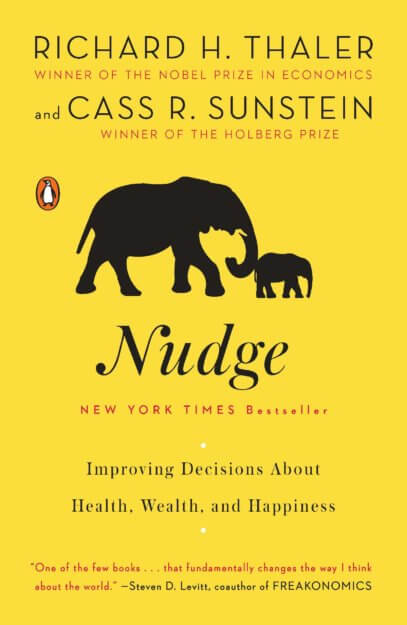
29. Nudge: Improving Decisions About Health, Wealth, and Happiness by Richard Thaler
Recommended by: Jeremy Cox
“Nobel Laureate, Richard Thaler, offers an introduction to some application of behavioral economic thinking. In order to create value, entrepreneurs should immerse themselves in the psychology of value perception,” Cox said. We have all thought about the choice versus fate question at some point. Now, Thaler has developed a method of structuring your environment to induce the right choice every time. Stop agonizing over the right call and just trust the framework. Essentially you can build your own, more effective, magic eightball and then put your creativity towards new innovation.
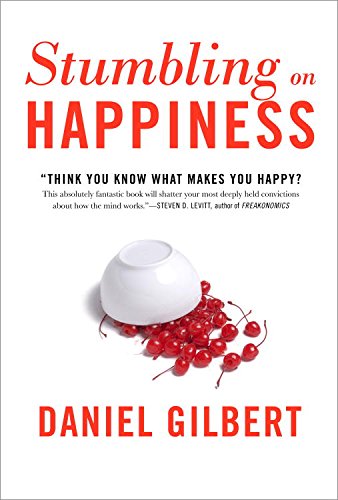
30. Stumbling on Happiness by Daniel Gilbert
Recommended by: Jeremy Cox
“Daniel Gilbert provides a thoughtful counter-point to traditional utility theory,” Cox said. “In this book, Gilbert lays out a model of how people perceive, experience and remember an event and all the external factors that manipulate these states of being.” It’s hard to know what will happen years down the road, but somehow life never seems to turn out how we expect. The Harvard psychologist discusses how we use imagination to predict our own future happiness, and why we are so often wrong.
• • •
Whether they provide food for thought or change your life any one of these books is a good investment. It’s never too late, or early, to invest in your future. Financial literacy, passion, managerial skills and creativity all provide an excellent start.
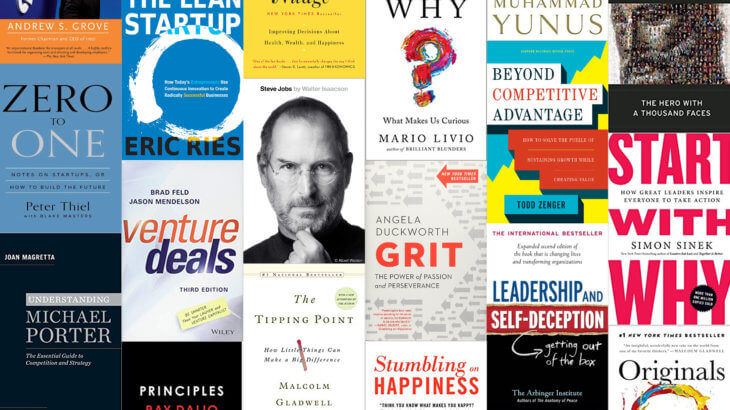



This is a great list!! I would also include ” The innovator’s dilemma” by Clayton Christensen and ” Good to Great” by Jim Collins.
Thanks for the additions! Those are also great books.
I also recommend “Nail it Then Scale It” by Utah’s own Paul Ahlstrom. https://www.amazon.com/gp/customer-reviews/R2MB1G0DS9UDV9/ref=cm_cr_getr_d_rvw_ttl?ie=UTF8&ASIN=B0055D7O1U
Hi, Gregg. Good addition. Thanks.
Great list! I would recommend “The Execution Factor” by Kim Perell. She spoke at the Silicon Slopes Tech Summit a few years back and is very inspiring.
Here’s the link to the book on her website:
https://www.kimperell.com/book/